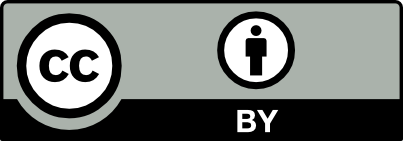Introduction, Purpose, and Benefits
The DOERS3 Collaborative is piloting the Equity Through OER Rubric with postsecondary education partners across the United States and Canada. Through a grant provided by the William and Flora Hewlett Foundation, funding has been provided to DOERS3 members in the form of six (6) $10,000 block grants to participating postsecondary institutions, and one (1) grant of $18,000 available to a postsecondary education system or state postsecondary education coordinating organization (SHEEOs). A total of seven (7) projects were funded for one year.
The Equity Through OER Rubric is a comprehensive self-assessment tool, designed to guide students, faculty, administrators and other academic practitioners and leaders in not only better understanding, but also acting on the equity dimensions of Open Educational Resources (OER). The rubric is organized by categories, aligned with roles and functions for higher education institutions, units, and practitioners. Its overarching goal is to enable users to integrate OER in equitable ways across higher education leading to equitable student access, outcomes, and success.
Engagement with the rubric accomplishes the interdependent goals of advancing quality OER and equity-minded teaching, learning, and operating cultures across institutions and systems. Participating in the project positions institutions to build capacity with OER to improve the quality of educational offerings and delivery, address disparities in student educational outcomes, and develop institution-wide infrastructure that is student- and equity-centered in ways that are aligned with institutional missions and strategic goals.
As an openly licensed tool, those who engage with the Equity Through OER Rubric will be invited and expected to adapt and customize it to their institutional and organizational culture. The pilot project is intended to guide DOERS3 in making improvements to the rubric. Funded projects will be asked to include reflection on and descriptions of rubric engagement and modifications as a part of their case studies/final grant reports.
The DOERS3 Collaborative is piloting the Equity Through OER Rubric with postsecondary education partners across the United States and Canada. Through a grant provided by the William and Flora Hewlett Foundation, funding has been provided to DOERS3 members in the form of six (6) $10,000 block grants to participating postsecondary institutions, and one (1) grant of $18,000 available to a postsecondary education system or state postsecondary education coordinating organization (SHEEOs). A total of seven (7) projects were funded for one year.
The Equity Through OER Rubric is a comprehensive self-assessment tool, designed to guide students, faculty, administrators and other academic practitioners and leaders in not only better understanding, but also acting on the equity dimensions of Open Educational Resources (OER). The rubric is organized by categories, aligned with roles and functions for higher education institutions, units, and practitioners. Its overarching goal is to enable users to integrate OER in equitable ways across higher education leading to equitable student access, outcomes, and success.
Engagement with the rubric accomplishes the interdependent goals of advancing quality OER and equity-minded teaching, learning, and operating cultures across institutions and systems. Participating in the project positions institutions to build capacity with OER to improve the quality of educational offerings and delivery, address disparities in student educational outcomes, and develop institution-wide infrastructure that is student- and equity-centered in ways that are aligned with institutional missions and strategic goals.
As an openly licensed tool, those who engage with the Equity Through OER Rubric will be invited and expected to adapt and customize it to their institutional and organizational culture. The pilot project is intended to guide DOERS3 in making improvements to the rubric. Funded projects will be asked to include reflection on and descriptions of rubric engagement and modifications as a part of their case studies/final grant reports.
Expectations and Requirements
Each funded project has the following deliverables:
Each funded project has the following deliverables:
- Create an initial gap analysis evaluating the institution’s current status in relation to the rubric.
- Develop a comprehensive action plan to achieve equity through OER via engagement with the rubric during the project year and beyond.
- Submit a case study to contribute to the DOERS3 OER Equity Blueprint set of case studies.
- Submit a final grant report, including a simple accounting of how the funds were spent.
Funded Projects
Questions? Contact Annika Many [email protected]

